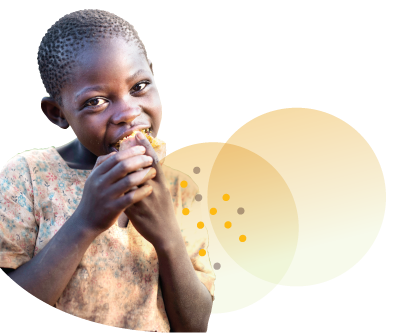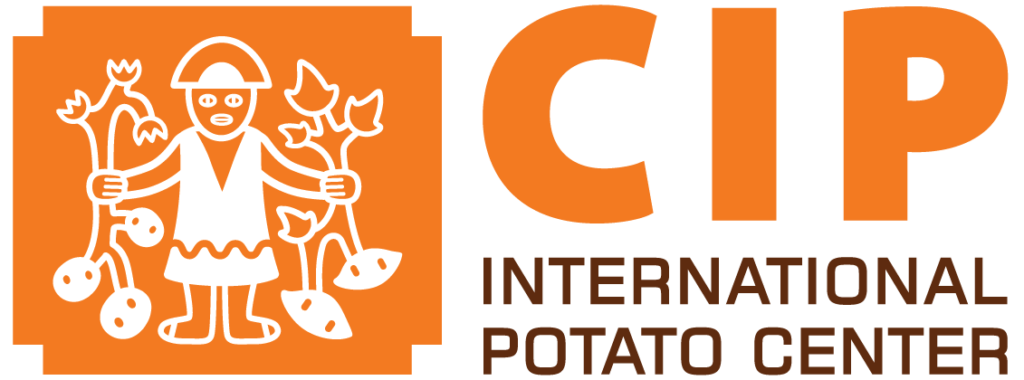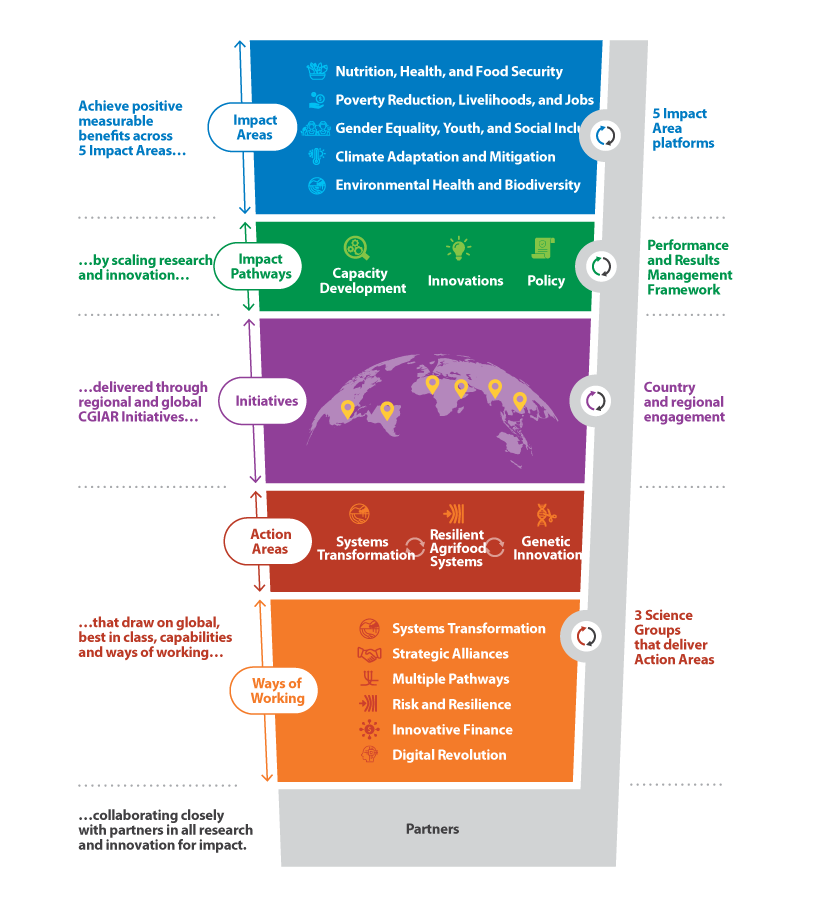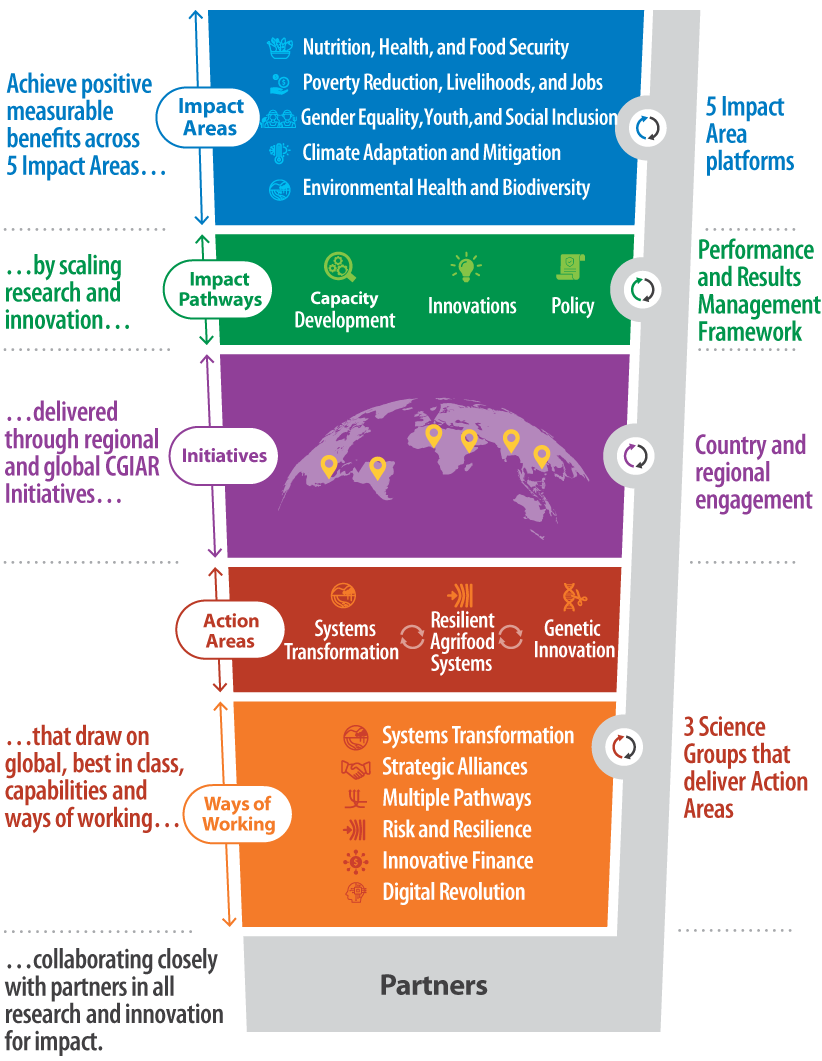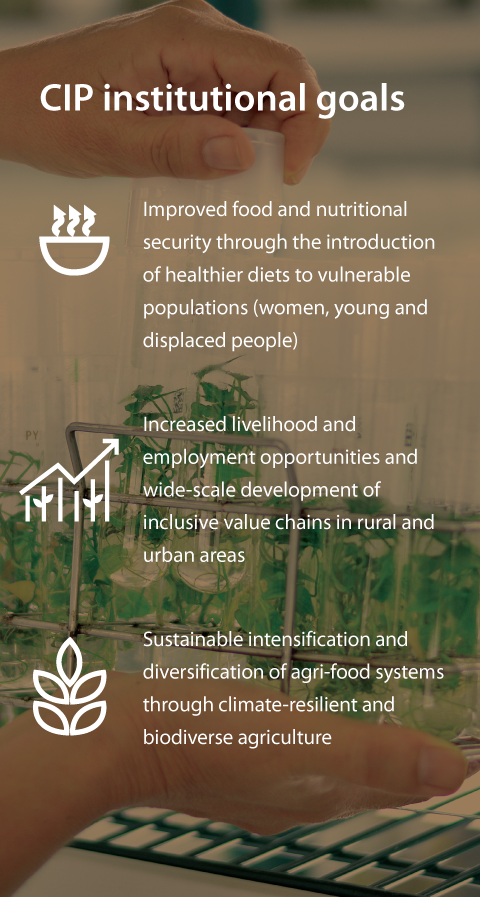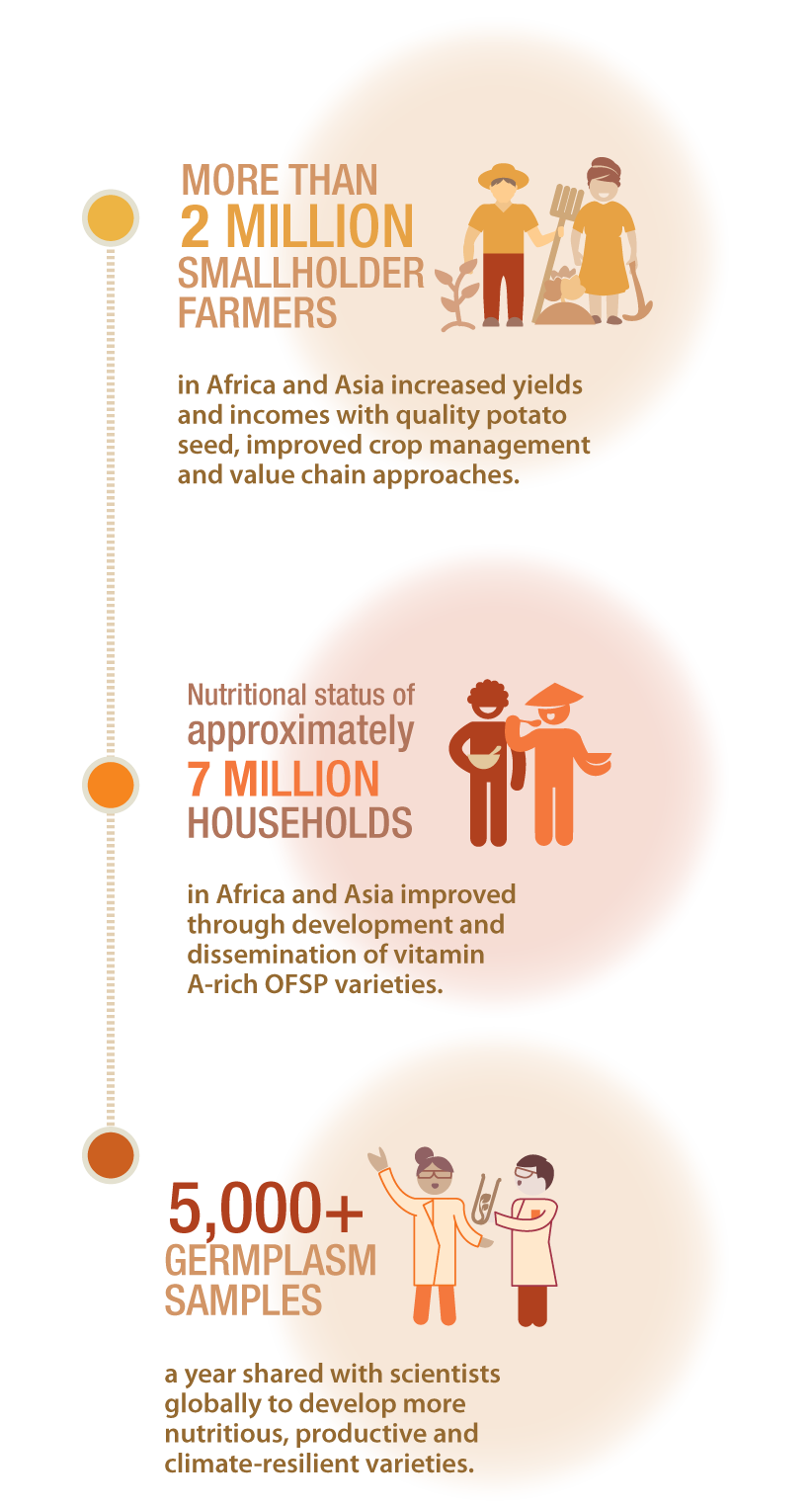CIP in CGIAR
CGIAR is a global partnership that unites organizations engaged in research for a food secure future. With 15 centers around the world, CGIAR is dedicated to reducing rural poverty, increasing food security, improving human health and nutrition and ensuring more sustainable management of natural resources. Tackling these challenges, which are at the heart of the United Nations Sustainable Development Goals, requires research to identify state-of-the-art solutions and effective partnerships to deliver them.
The CGIAR Research Portfolio is structured around two interlinked clusters of challenge-led research programs: agri-food systems and global integrating programs. CIP leads the agri-food system CGIAR Research Program on Roots, Tubers and Bananas and participates in several global integrating programs. CIP also works closely with the CGIAR research support platforms.
CGIAR Research Programs
Roots, Tubers and Bananas
Led by CIP
- Genetic resources
- Productive varieties and quality seed
- Resilient crops
- Nutritious food and added value
- Improved livelihoods at scale
Policies, Institutions and Markets
Led by IFPRI
- Technological innovation and sustainable intensification
- Inclusive and efficient value chains
- Social protection for agriculture
- Gender research
Climate Change, Agriculture
and Food Security
Led by CIAT
- Priorities and policies
- Climate-smart technologies and practices
Agriculture for Nutrition and Health
Led by IFPRI
- Food systems for healthier diets
- Biofortification
CGIAR Platforms
Big Data
Led by CIAT
- Data generation, access and management
- Big data and agricultural development
- Big data analytics
Genebank Platform
Led by the Global Crop Diversity Trust
- Conservation, use and policy
- Quality management, Information systems
- Germplasm health
Excellence in Breeding
Led by CIMMYT
- Product design and management
- Genotyping and phenotyping tools and services
- Bioinformatics, biometrics and data management
Gender Platform
Led by ILRI
- Research informs food system development
- Methodologies to achieve gender equality
- Alliances to strengthen outcomes
50 years and 11 key innovations
Since 1971 CIP has worked tirelessly to improve smallholder farmer access to more nutritious and productive varieties of potato and sweetpotato. This work requires much thought and innovation above and below ground and in the laboratory. Among a list of more than 60 innovations from CIP in the past 50 years, we highlight 11 key advances that have helped to strengthen potato and sweetpotato-based agri-food systems around the world.
Toward
One CGIAR
The world’s food systems require a radical realignment. Food systems have become a part of the problem, but they need to be part of the solution. Fifty years ago, when the world was facing rising hunger, CGIAR stepped up to help save billions of lives. Today, the challenges we face are far more complex, and there is so much more that we are striving to achieve. Today we know that food systems are critical not only for ending hunger, but for providing better nutrition, reducing poverty, promoting inclusion, safeguarding biodiversity, and mitigating climate change. Today’s challenges require a renewed strategy from CGIAR, the world’s leader on agricultural science and innovation for development.
The integration of CGIAR’s capabilities, knowledge, assets, people and global presence for a new era of interconnected and partnered research towards the Sustainable Development Goals will arrive this year as One CGIAR. This reconfiguration provides the opportunity for a fresh ten-year strategy that can shape a stronger and more relevant science agenda for today’s changing world. One CGIAR enables us to operate as a cohesive organization with a single mission, able to seamlessly leverage all our capabilities and assets.
The new arrangement of the CGIAR’s scientific strengths and abilities will adjust its research and innovation focus to three action areas (systems transformation, resilient agri-food systems, and genetic innovation) to drive the transformation needed to support humanity over the next 50 years (Figure 1).
The integration of CIP’s scientific and development expertise in genetic research, breeding, agronomic practices, and value chain development (among others) figure to play a major role in supporting this transformation.
